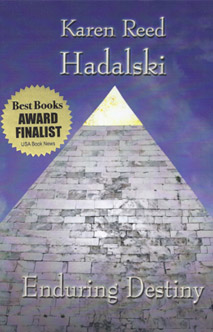What is “boredom,” really? Its one of the excuses the do-nothing sluggards who shot in the back and killed an innocent Australian college student out for a run this week.
The victim, Christopher Lane, clearly wasn’t bored. He was experiencing a new country and culture. He was studying numerous interesting subjects in college. He was an accomplished baseball player. He had established close, meaningful relationships. He was working to keep his body in shape by jogging. He had created for himself a life of meaning, value, and direction. Now he’s gone and society is left with 3 murderous monsters to support in prison for the rest of their useless lives.
Nothing can justify this. Certainly not the murderers’ race, or socio-economic status, or lack of opportunity, or “poor role models.” But I’m sure we’ll hear every one of these excuses and more before their trials are over.
The main reason I wrote Karma: How To View It, Use It and Lose It was because I had become sick of hearing so many make excuses for their own behaviors and choices in life and shift the blame onto others when things “don’t go well” or they are held accountable for their actions.
If Westerners understood the facts of reincarnation and karma–the law of cause and effect–they would realize:
1) We choose our life circumstances before each incarnation.
2) These choices are made either to balance karma created in previous lives, to learn, or to teach.
3) There is no such thing as good fortune or bad luck. We all enter into earthly life with a soul purpose. Therefore, every single life carries within itself direction, meaning, a goal, specific lessons to learn and goals to accomplish.
If we understood how the law of cause and effect works and how to uncover our unique, specific purpose for being here, how could anyone “lack direction,” be “bored,” or lie to themselves about personal accountability?



